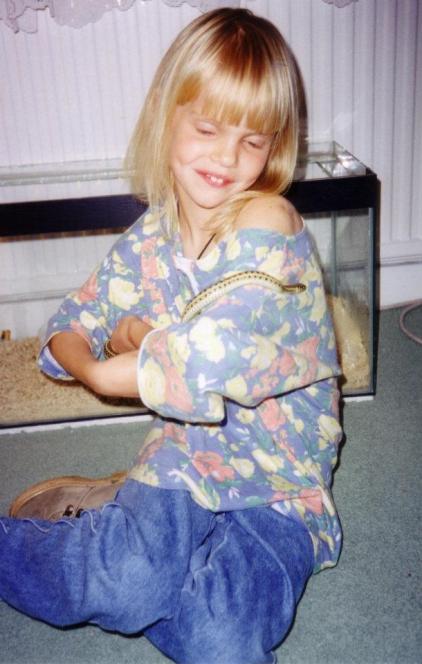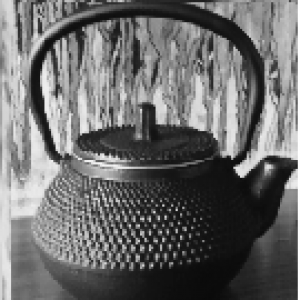Until very recently, autism was a rarely heard of diagnosis, believed to be an exclusively childhood disorder, primarily found in boys. Even as understanding of autism improves and more people are being diagnosed, myths remain. Many still believe that autistic people are unempathetic, it is still widely thought of as an extreme male brain disorder and, indeed, the 16:1 male:female diagnosis rates suggested by some studies would certainly seem to back these claims, however, as thousands of autistic women know, those studies do not reflect the truth. There are many autistic women, but we do not meet the stereotypical autism profile so, often, we are left undiagnosed. (I do not currently wish to get into the male/female autism differences but I have written an article in a free online magazine which you can find by clicking the link above and turning to page 16.)
I am one of many undiagnosed autistic women. I first read about autism in a psychology textbook when I was eight-years-old and I was amazed by how much it sounded like me, with one crucial difference: according to the text, autistics lack empathy. I knew that certainly wasn’t the case for me, I feel other people’s emotions to such a degree that a story told to me in passing over a decade ago, can still keep me up at night, feeling anguish for that person. I’ve never been great at expressing the concern I feel though and perhaps, to the untrained eye, that could look like a lack of empathy. For example, eight years ago, a colleague of mine turned up at my house, sat on my sofa and burst into tears because her ex was being horrible to her and her children. It was a horrific moment, I felt so badly for her but had no idea how to communicate that feeling: should I hug her? Pat her shoulder? Tell her it would be okay? Insult the man I’d never met? Offer her a cup of tea?! the options seemed limitless and, unable to work out the correct course of action, I simply stood, staring at her in abject horror until she pulled herself together and left. She didn’t speak to me much after that. I expect she thought I was a horrible person but it still hurts me and makes my heart do that weird leaping painful thing when I think about how upset she was that day and how I couldn’t make it better for her.
As I got older and learned more about autism, I identified more and more with the diagnosis, but the only popular portrayal of autism I had seen was Rain Man and I had visions of being locked away from my family if I was discovered to be autistic so I kept my mouth shut and my head down; desperately masking and trying to “fit in” to a world that never quite seemed made for me. At school I would watch, with interest, groups of children laughing and playing easily together, I always felt like a visitor from another world, observing the strange fauna of this little blue planet but not a part of it. Most of the time I was a model child: weirdly obedient, always quiet (unless you got me started on a subject of interest and then you couldn’t shut me up!), always did my homework, ate my vegetables and never rebelled; even as a teenager. I was just boring, quiet, little Hayley who liked collecting bugs and hiding in trees to read my books. My best friends, besides my sister, were my border collie, my budgie and my snake.

I, as many autistic girls did back then, flew under the radar. Some autistic girls were labelled “violent” or “difficult” but some, like me, were just too quiet to be noticed. I was like a perfect little robot who never raised any suspicions because my behaviour never caused an issue for my parents or teachers and I never spoke up about how much I was struggling socially for fear of reprisal.

It wasn’t until I was in my twenties and seeking a diagnosis for my eldest child that I really began to explore my own autism in depth. I could see so much of myself in my daughter except where I’m introverted and suffer primarily from shutdowns when I get overwhelmed, she is extroverted and suffers from big loud meltdowns when she gets overwhelmed. Her being extroverted means that her autistic behaviours stand out much more and, with autism being more understood and recognised these days, we were able to get her diagnosed. Although even that was no easy task, it took four years of continuous fighting and nearly completely destroyed my mental health. My psychiatric health was a total mess by the time my daughter was getting the support she needed and I’ve no wish to go through all that again just so I can have my own diagnosis, especially since I’m not entirely sure what benefit gaining a diagnosis this late in life could bring me. At least my daughter being diagnosed now means she won’t go through the anguish I did through my childhood and early twenties, believing she’s weird or subnormal when she doesn’t fit it, she will know it’s just because of her neurodiversity and hopefully will be able to seek out other neurodiverse people who will understand her. It also means that if she ever goes back into a school or college, they will understand her behaviours better and be able to support her. I’m past all that now and, over the years, have developed my own coping mechanisms for when things get too much.
Reactions to the undiagnosed autistic.
There is a strange contrast between the reactions of neurotypical people and autistic people when you tell them you’re an undiagnosed/self-diagnosed autistic. Neurotypical people who have had no autism experience often get somehow defensive and sometimes even cross, assuming you’ve come to the conclusion of your own neurodiversity after ten minutes browsing the internet and not from a lifetime of feeling different, speaking to people, meeting autistics and (in my case) seeing your own children go down the diagnostic pathway. They often throw their hands up and yell that everything is pathologised “these days”, totally ignorant to the thousands of hoops that autistic people and their parents/advocates must jump through in order to obtain a diagnosis.
Autistic adults know how it is to live your whole life never quite fitting in but not receiving a diagnosis because you’re female or because autism wasn’t recognised in your area when you were a child. They understand the struggle of gaining a diagnosis on the NHS and many autistic adults simply accept diagnosed and undiagnosed autistics into their flock. Most support groups on Facebook actually have the tagline “Self-diagnosed welcome” just to ensure that people who, for one reason or another, haven’t got a diagnosis know they can join and feel included. Being in these groups often gives people the confidence to seek their own diagnosis if they feel it will help them and their friends and families better understand them, others are happy to remain undiagnosed, content to finally have found a safe space where, at last, they feel they fit in.
A Sort of Imposter Syndrome
Of course, being undiagnosed often makes me feel like an imposter in the autistic community. Even though most of my autistic peers are happy knowing my undiagnosed status and don’t judge me for not having a piece of paper confirming my neurodiversity, the scorn of neurotypical people can hurt a lot and leave me feeling like maybe I am just, as they suggest, pathologising typical behaviours. It goes without saying that one should always be careful when trying to diagnose oneself and that online tests are hardly comparable to official medical tests but there are some great tools and tests online for people to take if they feel they may be autistic (a quick Google search for “autism test” turns up around 150,000,000 results). Perhaps these tests could be used as an aid to take with you to the GP if you do go to seek a diagnosis. I have taken many such tests over the years when I’ve been feeling like an imposter and they always flag me as having “moderate to strong” Asperger’s or autism traits and suggest I see my GP for an official diagnosis. I do think I will seek a diagnosis one day, but for now, I know that I am not mentally up to the challenge so I will remain undiagnosed.
